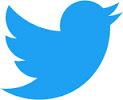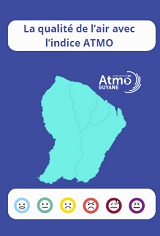Blada.com
dimanche 01 mars
Boîtes aux lettres
Courrier des lecteurs
Petites annonces
Emploi / Formation
Covoiturage
Infos citoyennes
Infos citoyennes
12/03/21
Se faire vacciner est-il utile pour la Guyane ?
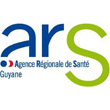 Le Dr Félix Ngomba-wongola, président du conseil départemental de l’ordre des médecins, appui l’appel que le Conseil national a lancé aux professionnels de santé pour se faire vacciner. Il rappelle qu’un soignant réticent ne peut pas refuser d’orienter vers le vaccin un patient qui en ferait la demande et se montre rassurant quant aux garanties obtenues par les professionnels en matière de responsabilité.
Le Dr Félix Ngomba-wongola, président du conseil départemental de l’ordre des médecins, appui l’appel que le Conseil national a lancé aux professionnels de santé pour se faire vacciner. Il rappelle qu’un soignant réticent ne peut pas refuser d’orienter vers le vaccin un patient qui en ferait la demande et se montre rassurant quant aux garanties obtenues par les professionnels en matière de responsabilité.
En tant que président du conseil départemental de l’ordre des médecins, vous joignez-vous à l’appel que les conseils nationaux des professions de santé lancent à tous les soignants pour se faire vacciner contre le Covid-19 ?
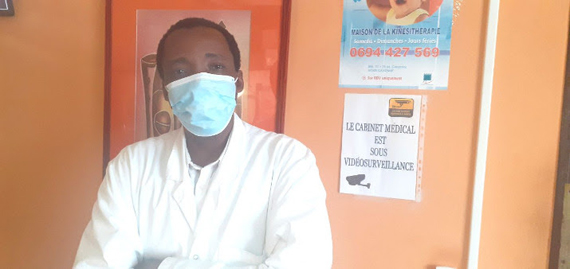 Le conseil national a fait un rapport pour voir quels départements ont un taux élevé de vaccination dans leur personnel médical et paramédical. Il est vrai qu’en Guyane, nous avons du mal à inciter nos confrères à se faire vacciner. Mais la machine se met en route. Je garde espoir. Dans les jours, les semaines, les mois à venir, nous parviendrons à faire vacciner un grand nombre, si ce n’est la totalité du personnel médical qui, ensuite, va inciter sa patientèle à se faire vacciner.
Le conseil national a fait un rapport pour voir quels départements ont un taux élevé de vaccination dans leur personnel médical et paramédical. Il est vrai qu’en Guyane, nous avons du mal à inciter nos confrères à se faire vacciner. Mais la machine se met en route. Je garde espoir. Dans les jours, les semaines, les mois à venir, nous parviendrons à faire vacciner un grand nombre, si ce n’est la totalité du personnel médical qui, ensuite, va inciter sa patientèle à se faire vacciner.
Que vous disent les professionnels de santé qui hésitent ou refusent de se faire vacciner ?
Ce qui revient le plus souvent, c’est la rapidité avec laquelle le vaccin a été trouvé et le fait qu’il s’agisse un vaccin de type nouveau. Il est basé sur l’ARN messager qui va aller trouver la protéine Spike pour stimuler une certaine immunité. La vaccination classique, à base d’un virus atténué, n’est pas utilisée en Guyane. Le professionnel de santé érudit, qui va regarder avec un œil critique, a besoin d’être stimulé. Mais c’est quelque chose qui va venir.
Estimez-vous comme l’Académie de médecine, qu’il faut rendre obligatoire la vaccination des professionnels de santé ?
Ce problème a été soulevé lors de la réunion avec le Conseil national, mardi. L’Académie de médecine a parlé de cette « responsabilité déontologique », qui nous a bien été expliquée. Le professionnel de santé qui n’est pas vacciné et potentiellement malade peut être en contact avec un patient fragile et lui transmettre cette pathologie. Sommes-nous dans un cas où il y a mise en danger de la vie d’autrui ? C’est une question déontologique qui n’est pas tranchée. C’est sur cette base que l’Académie de médecine a pris position pour que le personnel médical soit vacciné de manière obligatoire. Mais le Conseil national n’est pas de cet avis et nous non plus, au niveau départemental. Nous pensons qu’il est toujours bon d’inciter les gens plutôt que de rendre les choses obligatoires.
Vous-mêmes, êtes-vous vacciné ?
J’ai pris rendez-vous et le serai prochainement. On communique là-dessus pour dire que c’est quelque chose qu’il faut faire et qui est sans danger.
Vos patients, issus de quartiers populaires de Cayenne, vous parlent-ils de la vaccination ?
Énormément. Ils entendent beaucoup parler de cette vaccination. A l’image de la Guyane, ils sont un peu réticents car il y a beaucoup d’idées reçues. Il faut de la pédagogie. Je prends toujours l’exemple de la vaccination contre la fièvre jaune. Tous ceux qui vivent ici ou qui viennent ici font volontairement la vaccination car ils sont persuadés de son utilité. Nous devons utiliser la même pédagogie : vous avez compris que la vaccination contre la fièvre jaune est utile pour la Guyane car cette pathologie est endémique. C’est la même chose pour la vaccination contre le Covid-19. Il faut sortir des idées reçues, comprendre son utilité et nous y arrivons. Plein de patients viennent d’emblée me demander la vaccination. Ils sont convaincus. Malheureusement, un grand nombre est encore hésitant. Nous dialoguons et je reste persuadé qu’il faut inciter les patients à se faire vacciner et non le rendre obligatoire.
Avez-vous eu écho de confrères qui refuseraient d’orienter vers la vaccination des patients qui leur demandent d’en bénéficier ?
Au niveau du conseil de l’ordre, non. Il y a des ouï-dire, non corroborés, que certains médecins seraient, pour eux-mêmes, contre la vaccination, ce que l’on peut comprendre. Mais le conseil de l’ordre dit de manière très claire :
- La vaccination n’étant pas obligatoire, le médecin a le droit de ne pas se faire vacciner ;
- Mais, il n’a pas le droit d’empêcher son patient d’aller se faire vacciner ou de refuser de l’orienter vers le centre de vaccination.
C’est un message qu’on fait passer de manière claire et absolue. Les confrères qui seraient dans cette optique ont bien reçu le message : s’ils ne le veulent pas du vaccin pour eux-mêmes, ils doivent orienter le patient qui en fait la demande vers le centre de vaccination ou vers un autre confrère.
Avez-vous toutes les garanties en matière de responsabilité du médecin ou du professionnel de santé vis-à-vis de la vaccination ?
De manière absolue, pour la vaccination, l’État a pris toutes les responsabilités pour que le médecin ne puisse pas être attaqué, de quelque manière que ce soit. Nous tenons cette garantie du ministère de la Santé. C’est l’État qui incite à la vaccination. Cette vaccination est assurée par les professionnels de santé. Et les professionnels de santé, à part leur assurance personnelle, ne pourront pas être tenus responsables pour cet acte vaccinal.
Dr Félix Ngomba-wongola, president of the departmental council of the medical order, supports the appeal that the National Council has made for health professionals to be vaccinated. He recalls that a reluctant caregiver cannot refuse to refer a patient for the vaccine who requests it and is reassuring about the guarantees obtained by professionals in terms of liability.
As president of the departmental council of the order of physicians, do you join the call that the national councils of the health professions are making for all caregivers to be vaccinated against Covid-19?
The national council made a report to see which departments have a high vaccination rate among their medical and paramedical staff. It is true that in French Guiana, we find it difficult to encourage our colleagues to be vaccinated. But the machine sets off. I keep hope. In the days, weeks and months to come, we will be able to vaccinate a large number, if not all of the medical staff who will then encourage their patients to be vaccinated.
What do healthcare professionals say to you who hesitate or refuse to be vaccinated?
What comes up most often is how quickly the vaccine was found and the fact that it is a new type of vaccine. It is based on messenger RNA which will find the Spike protein to stimulate a certain immunity. Classical vaccination, based on an attenuated virus, is not used in French Guiana. The learned healthcare professional, who will look on with a critical eye, needs to be stimulated. But it's something that's going to come.
Do you agree with the Academy of Medicine, that the vaccination of health professionals should be made compulsory?
This issue was raised during the meeting with the National Council on Tuesday. The Academy of Medicine spoke of this "ethical responsibility", which was well explained to us. The health professional who is not vaccinated and potentially ill may be in contact with a fragile patient and transmit this pathology to him. Are we in a situation where the life of others is endangered? This is an unresolved ethical question. It is on this basis that the Academy of Medicine has taken a position that medical staff be vaccinated on a mandatory basis. But the National Council does not agree and neither do we, at the departmental level. We think it's always good to entice people rather than make things obligatory.
Are you yourself vaccinated?
I have made an appointment and will be soon. We communicate about it to say that it is something that needs to be done and that is safe.
Do your patients, from working-class neighborhoods of Cayenne, talk to you about vaccination?
Verry much. They hear a lot about this vaccination. Like French Guiana, they are a bit reluctant because there are a lot of misconceptions. We need pedagogy. I always take the example of vaccination against yellow fever. All those who live here or who come here voluntarily do the vaccination because they are convinced of its usefulness. We must use the same pedagogy: you have understood that vaccination against yellow fever is useful for French Guiana because this pathology is endemic. The same goes for vaccination against Covid-19. We have to get out of preconceived ideas, understand its usefulness and we get there. A lot of patients come and ask me for my vaccination. They are convinced. Unfortunately, many are still hesitant. We are in dialogue and I remain convinced that we should encourage patients to be vaccinated and not make it compulsory.
Have you heard from colleagues who refuse to refer patients who ask them to benefit from it for vaccination?
At the level of the order council, no. There is hearsay, not corroborated, that certain doctors would be, for themselves, against the vaccination, which one can understand. But the order council says very clearly:
- Since vaccination is not compulsory, the doctor has the right not to be vaccinated;
- But, he does not have the right to prevent his patient from going to be vaccinated or to refuse to refer him to the vaccination center.
This is a message that is conveyed in a clear and absolute manner. The colleagues who would be in this perspective have received the message: if they do not want the vaccine for themselves, they must refer the patient who requests it to the vaccination center or to another colleague.
Do you have all the guarantees regarding the responsibility of the doctor or health professional with regard to vaccination ?
In absolute terms, for the vaccination, the state took full responsibility so that the doctor could not be attacked in any way. We hold this guarantee from the Ministry of Health. It is the state that pushes for vaccination. This vaccination is provided by health professionals. And health professionals, apart from their personal insurance, cannot be held responsible for this vaccination act.
Raccourcis

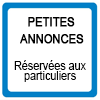
passer une petite annonce
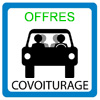
passer une annonce de covoiturage
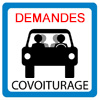
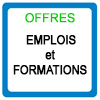
passer une annonce d’emploi
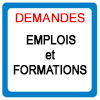
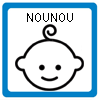
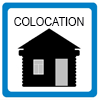
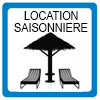
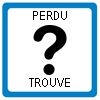
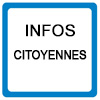
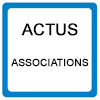
associations, postez vos actualités
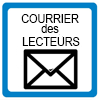
participez au courrier des lecteurs
La Guyane c’est ici
La qualité de l’Air avec
ATMO
Photothèque

Lancements 2022
Vol 259 Ariane 5


